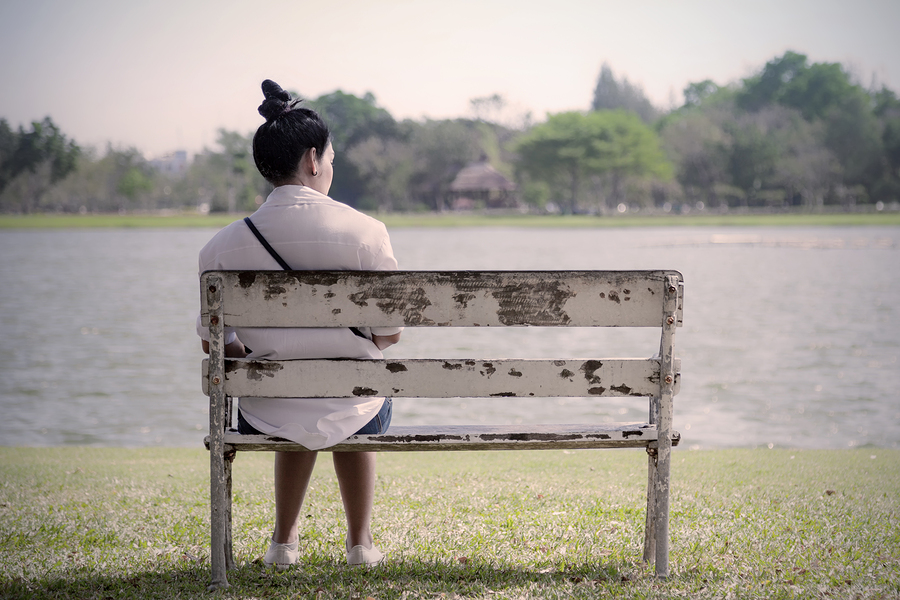 In this 21st century world of constantly changing technology, some things remain unchanged. One of those constants is that human beings need human contact. Without meaningful human connections, loneliness prevails, negatively affecting physical, mental and emotional wellbeing.
In this 21st century world of constantly changing technology, some things remain unchanged. One of those constants is that human beings need human contact. Without meaningful human connections, loneliness prevails, negatively affecting physical, mental and emotional wellbeing.
Just this week in London, after describing loneliness as “the sad reality of modern life [for] far too many people”, British Prime Minister Theresa May announced the establishment of its first minister for loneliness. In her article for the Canadian version of the Huffington Post, writer Nina Golgowski explained the decision to create a new ministerial position resulted from recent studies that showed “one in 10 people in the U.K. face isolation, a condition that can trigger a range of physical and mental health issues.”
In a statement released Wednesday, May said, “I want to confront this challenge for our society and for all of us to take action to address the loneliness endured by the elderly, . . . by those who have lost loved ones--people who have no one to talk to or share their thoughts and experiences with.”
The newly appointed minister, Tracey Crouch, comes to the position after being a junior minister for the U.K.'s sport and civil society. According to Golgowski, Crouch promised to work on the original suggestions established by Britain’s Jo Cox Commission on Loneliness.
With its mission to reduce loneliness and social isolation, the Jo Cox Commission published new statistics on the current state of loneliness in Britain in a publication titled Combatting Loneliness One Conversation at a Time—A Call to Action. Quoting Independent Age, a non-profit organization in London, the publication stated that “more than 1 in 3 people aged 75 and over say that feelings of loneliness are out of their control”. And, citing the British Red Cross and Co-op, it stated: “Over 9 million adults are often or always lonely”.
Golgowski wrote that the detrimental effects of loneliness influence a person psychologically—but, more surprisingly, they affect them physically as well. She quoted Julianne Holt Lunstad, a psychology professor from Utah’s Brigham Young University, who said: “Having weak social connections is considered to be as damaging to one’s health as smoking 15 cigarettes a day.”
In the material published by the Jo Cox Commission, Lunstad said, “There is robust evidence that social isolation and loneliness significantly increase risk for premature mortality and the magnitude of the risks exceeds that of many leading health indicators.” The challenge “is what can be done about it.”
In a September 2017 article for Mad in America, a non-profit organization based in Massachusetts, writer Zenobia Morrill quoted Julianne Holt Lunstad from her appearance at the 125th annual convention of the American Psychological Association. “Being connected to others socially is widely considered a fundamental human need--crucial to both well-being and survival,” Lunstad said. “Indeed, many nations around the world now suggest we are facing a ‘loneliness epidemic.”
Morrill explained Lunstad’s recommendation that when people begin getting ready for retirement, they should focus not only on their long-term financial stability but on the sufficiency of their social supports as well. Morrill said she suggested, “doctors include social connectedness in their medical screening”.
The American Association of Retired Persons recently reported that “42.6 million American adults over the age of 45 are estimated to be suffering from chronic loneliness” Morrill added.
Back in Nina Golgowski’s article for Huffington Post Canada, she referred to an article that appeared in the September 2017 Harvard Business Review, written by former U.S. Surgeon General Dr. Vivek Murthy. Loneliness, wrote Murthy, can be connected to “a greater risk of cardiovascular disease, dementia, depression and anxiety.”
In his article, Murthy explained that throughout his time as surgeon general for the U.S., he saw for himself how loneliness impacted so many people, regardless of their socio-economic status or ages. “I met middle and high school students in urban and rural areas who turned to violence, drugs, and gangs to ease the pain of their loneliness,” he wrote. “I sat with mothers and fathers who had lost sons and daughters to drug overdoses and were struggling to cope alone.”
Most notably, Murthy said: “During my years caring for patients, the most common pathology I saw was not heart disease or diabetes; it was loneliness.”
In her article for PsychCentral.com, psychologist Mary Hartwell-Walker, Ed.D., identified a variety of therapy options that are available to people looking for help with loneliness. She suggested:
- Individual therapy can help you recover from old hurts and develop self-esteem so you will have the courage to try again
- Group therapy can help you master social skills you [may not have learned] while growing up and become more at peace with the limits of what others can do.
- Online support groups can provide the opportunity to learn from others who have the same difficulties.
- And a little “bibliotherapy” (reading self-help books) sometimes is just the thing if you need new ways to think about confronting difficulties with relationships. By focusing on developing your self-esteem and your social adeptness, you will be much more likely to succeed.
References
Golgowski, N., (January 18, 2018). Huffpost.ca. U.K. Appoints A Minister For Loneliness Amid Rising Health Concerns. http://www.huffingtonpost.ca/entry/uk-appoints-minister-for-loneliness_us_5a60956ee4b01b82649d0818
Hartwell-Walker, M., Ed.D., (Retrieved January 18, 2018). PsychCentral.com. The Roots of Loneliness. https://psychcentral.com/lib/the-roots-of-loneliness/
Morrill, Z., (September 1, 2017). Mad in America. https://www.madinamerica.com/2017/09/loneliness-lethal-researchers-name-social-isolation-public-health-threat/
Murthy, V., (September 2017) Harvard Business Review. Work And The Loneliness Epidemic. https://hbr.org/cover-story/2017/09/work-and-the-loneliness-epidemic